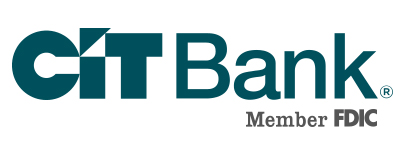Pros:
- Custodial accounts available
- Competitive interest rates on accounts
- Wide range of CDs offered
- No monthly fees
Cons:
- High opening required amounts
- Long transaction periods
- Hard to access custodial account money
- High early withdrawal fees for CDs
Pros:
- Student checking account
- No required amount to open accounts
- Interest bonus when savings goals met
- Business accounts available
Cons:
- Accounts have a monthly fee
- Hard to waive checking account fees
- Accounts not offered everywhere
- Low-interest rates
CIT Bank offers custodial accounts. You open the account in your child's name, but you control the account until the child is eighteen years old. There are no limits on how much you deposit into the account. There are tax benefits to having a custodial account.
The interest rates for CIT Bank accounts are very competitive. The high yield savings account rates are much higher than your typical bank. CIT Bank rates are even higher than other online-only accounts. CD rates are also competitive.
CIT Bank offers a variety of CDs including regular term CDs, no-penalty CD, jumbo CDs, and Ramp Up CDs. The no-penalty CD is an eleven-month CD. You earn interest on a CD with the options to withdraw the money at any time after the first seven days. The Ramp-Up CDs allow you to get a better rate once during the term of the CD. With the Ramp-Up Plus CD, you can get a better rate and make a deposit once during the term of the CD.
CIT Bank does not have a fee to open any of their banking accounts. There are no monthly maintenance fees for any of their banking accounts either.
The required amount to open a CD with CIT Bank is high. The minimum deposit for CDs is $1,000, including custodial accounts. Jumbo CDs require $100,000 to open. Other CDs require either an opening balance of $25,000 or $50,000. The minimum deposit to open a savings account is $100.
Transferred funds are not available until five to ten business days after the deposit is made. Deposits transferred from an external account are available after five days. Deposits mailed take ten days after the deposit is received.
Any money deposited into a custodial account is an irrevocable gift. You cannot withdraw or transfer the money from the account. It cannot be used for any purpose that doesn't directly affect the child listed on the account. Once the child reaches eighteen years of age, the money can be accessed.
CIT Banks fees for early CD withdrawals are higher than other banks. The fee for withdrawing money early from a CD with a term of more than three years is twelve months of interest. The fee for terms from one to three years is six months interest. Fees for CD terms up to one year are three months interest.
The Fifth Third Student Banking account does not have a monthly fee if the student is 16 years or older. There is no amount required to keep in the account. Five ATM transactions at non-Fifth Third ATMs are free each month.
There is not a set amount required to open a Fifth Third checking account or savings account.
The Fifth Third Goal Setter Savings account offers a one-time interest bonus when you reach your savings goal. The amount you receive is equal to the amount of interest you have earned while the account is open. The account must be open for at least 185 days. The savings goals can range from $500 to $25,000. Interest is only paid on balances under $50,000.
Fifth Third offers a variety of accounts for small or commercial businesses. Various checking accounts are available. These accounts vary to fit how much money your business deals with monthly. Savings accounts, CDs, loans, and credit cards are also available.
Most all Fifth Third accounts have a monthly maintenance fee. The savings accounts have a fee of $5 per month. The checking account fees range from $8 to $25 each month depending on the account. There are ways to have the fees waived, but those vary by account.
Not only do Fifth Third checking accounts have fees, but the requirements to waive the fee are tough. Having a direct deposit into the account lowers the fee but does not waive it. You must have at least $1,500 to $100,000 in Fifth Third accounts depending on the account. Spending $500 on a Fifth Third credit card waives the fees. Having a mortgage, loan, or line of credit with a balance also waives the fee.
Accounts are not offered everywhere. Fifth Third currently offers accounts in ten states. If you do not live in one of those ten states, you are not eligible to open a deposit account with Fifth Third.
The interest rates on accounts are low. Fifth Third rates are typical of other banks. They are not competitive with online-only bank accounts. The more money you invest, the better interest rates you will earn.


